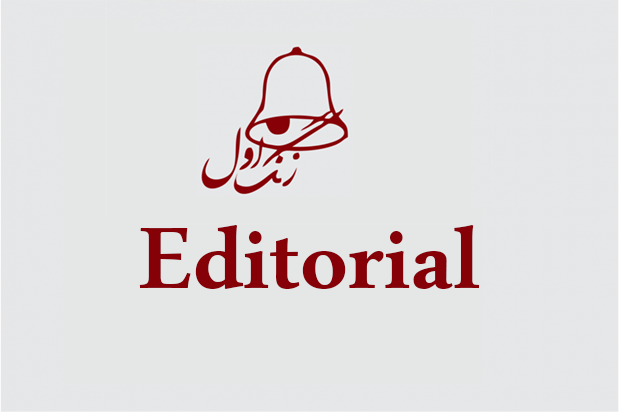The reason why President Ghani is steadfastly turning his back on his political agreements is that he thinks he is the only person with his knowledge, tact and prudence. He thinks that he is the only source of good and prosperity in this country and the rest are pure evil. According to him, only he knows the final solutions to the many problems of this country. Ghani political history shows that he does not trust anyone else’s ability and good faith when it comes to the country’s prosperity. The history of President Ghani’s political alliances shows that he sees all his political allies as a means to an end. Contrary to what he states, his political ideal is neither development plans nor major development projects. His political ideal is nothing but to seize power. The power that is his ultimate goal, not the power of a bureaucratic apparatus that has emerged for specific tasks and functions in the modern age and ultimately provides services to the people who delegate their responsibilities to the bureaucracy. The president wants absolute power and is not willing to share it with anyone.
President Ghani’s unilateral decisions, contrary to the laws and principles, regarding members of the cabinet, deputies, governors and heads of independent institutions whose appointment or removal neither the law was observed nor advice, have plagued Afghanistan’s political community and even international partners in recent years.
Interestingly, the President sometimes mentions the famous speech attributed to Winston Churchill, the famous British Chancellor during World War II. The famous saying is that there is no permanent enemy or friend but what is permanent, is the benefits. Although the President makes this famous statement of Churchill in connection with the interaction between governments, he has also shown this political belief in domestic politics in his behavior towards the enemy and the friend.
In recent years, he has given his political allies less leeway in decision-making and has not considered their share of power. He even used all the tools to knock them down.
Aside from the issue of breaking the agreements with the allies and the monopoly over power, now he is the only person deciding on the issue of peace and war in Afghanistan and no one is willing to decide on these issues except him.
If in this war, people’s children fight every day to protect the government and are killed and wounded, the fathers of these soldiers also have the right to participate in the decisions related to the war and peace of this country.
In the current situation, it requires that major issues such as peace and war be included in national consultations. All Afghan elders, parties, civil society organizations and social groups should be involved in these decisions.
President Ghani, however, wants a consensus that can be controlled by him when a consensus is formed. For example, the High Council of State, which was supposed to be formed after the formation of the new government in 2020, has not been established yet. The High Council for National Reconciliation has not yet been able to establish its important decision-making structures due to the lack of budget approval and the lack timely formation of the council. Under the political agreement, the president has only an advisory role on the issue of peace, but he unilaterally vetoes decisions that do not suit him in the process. An example was the peace plan drafted by the High Council for National Reconciliation after reading the plans of various political organizations, and the president’s ‘veto’ was stated as the reason for the rejection of this plan and the government’s views taking precedence over it by the second vice president.
Even now, the High Council of State is not formed due to the President’s insistence. The President, as stated at the outset, does not accept any institution, person or mechanism that diminishes his absolute decision-making powers.
The formation of the High Council of State in the current situation can strengthen the legitimacy of decision-making on peace and war, create a political consensus and reduce the burden of responsibilities on the shoulders of the president. But the president, who firmly believes in having the absolute power, is unwilling to give the council a decision-making role. He also interferes with the number of members of this council and wants to arrange its members in such a way that the majority would be on his side, and consequently move the council’s decisions in any direction he wants.












